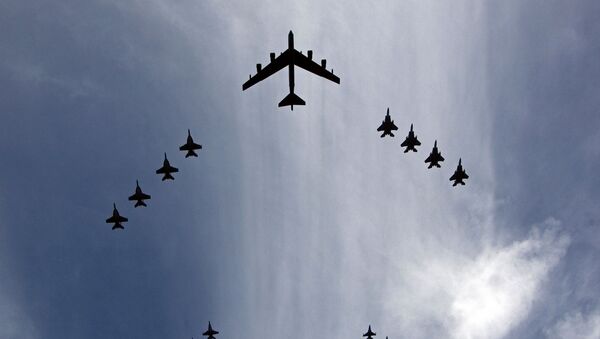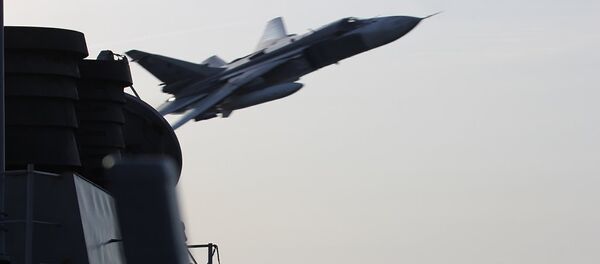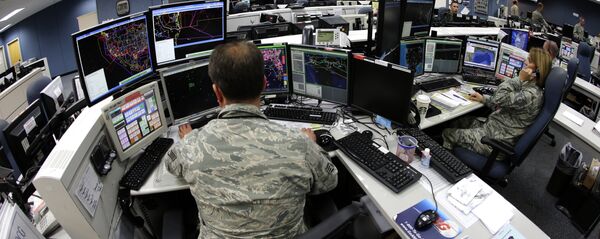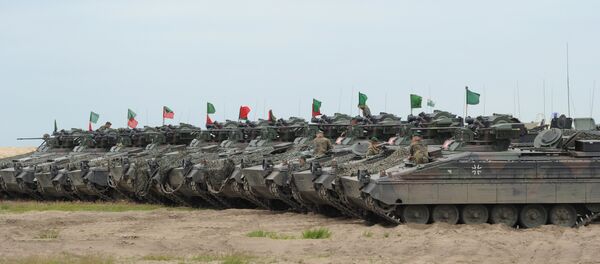Lawmakers, the political newspaper writes, are fired up about supporting President Barack Obama's military budget proposal, particularly the section devoted to quadrupling US military expenditures in Europe. The spending would allow the Pentagon to station more troops and weapons in Central and Eastern Europe.
"We do have money to station troops in various parts of Eastern Europe, and that's the main thing, to have a presence in the region and to show support for our allies," Democratic Congressman Adam Smith, the ranking member of the committee, told The Hill.
The events in the Baltic Sea involving the USS Donald Cook, where a pair of Russian jets were reported to have repeatedly buzzed the US ship, and a separate incident later involving a Su-27 multirole fighter performing a barrel-roll maneuver over a US spy plane flying in the same region, appear to have given lawmakers the extra motivation they needed, "put[ting] the spotlight back on Russia."
"At the top of lawmakers' measures against Russia in the National Defense Authorization Act is the European Reassurance Initiative, which is designed to provide aid to the militaries of European allies worried about Moscow's moves," The Hill said. "The bill would authorize $3.4 billion for the initiative, the same amount the administration requested, and quadruple what the initiative got this year."
Earlier, NATO had committed itself not to station significant forces in Eastern Europe, ostensibly to try to stay within the spirit of the 1997 NATO-Russia Treaty, which promised Moscow no new bases near Russia's borders.
"The bill," The Hill notes, "would also authorize $150 million for the Ukraine Security Assistance Initiative, which would help train and equip that country's military."
Finally, in addition to funds directed explicitly against Russia, committee members are also pushing to simplify the Pentagon's purchasing process, and "touting the additional aircraft, ships and other equipment the bill would authorize spending on as necessary to deter Russia."
The spending, the Republican congressman told the newspaper, would allow the Navy to increase its 272 ship fleet to 350, and "is going to be vitally important to have the kind of presence we need so that we can start actually deterring some of this kind of aggression from happening."
Russia, for its part, has maintained that the 'aggression' may actually be coming from the side that's sending its troops, ships and aircraft thousands of miles across the oceans to Russia's borders, not the other way around.




